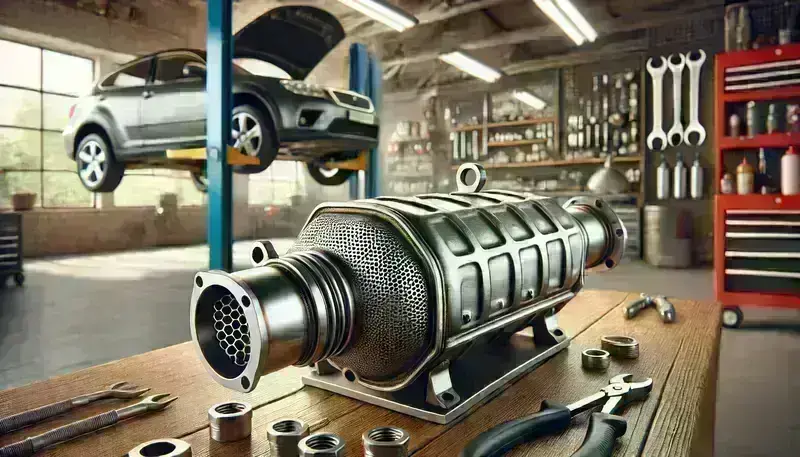Signs of a faulty catalytic converter and what you can do about it
Signs of a faulty catalytic converter and what you can do about it
The catalytic converter is an essential part of your vehicle's exhaust system, helping to reduce harmful emissions. When the catalytic converter is faulty, it can not only harm the environment but also affect your vehicle's performance. In this blog post, you will learn the signs of a faulty catalytic converter and what steps you can take.
Signs of a faulty catalytic converter
- Loss of power: A common sign that the catalytic converter is faulty is a noticeable loss of engine power. If the catalytic converter is clogged, it can obstruct the exhaust flow, leading to reduced engine performance. You might notice your car struggles to start or loses power.
- Increased fuel consumption: A faulty catalytic converter can increase fuel consumption because the engine has to work harder to meet the same performance demands, especially if the converter clogs the exhaust system.
- Rattling noises: If you hear rattling noises from the catalytic converter area when starting or driving, it could indicate the catalytic converter is faulty and that its internal components are damaged or loose.
- Poor emission test results: A faulty catalytic converter often results in poor emissions. This can be detected during an emissions test and lead to problems with vehicle registration.
- Dashboard warning light: Modern vehicles have sensors that monitor the efficiency of the catalytic converter. If these sensors detect a malfunction, the check engine light on your dashboard will illuminate.

What you can do about a faulty catalytic converter
- Diagnosis: Before taking any action, you should have a precise diagnosis performed. A professional workshop can use diagnostic tools to determine if the catalytic converter is faulty or if there are other issues.
- Cleaning: In some cases, a professional cleaning of the catalytic converter can help. This can remove blockages and restore the converter's efficiency.
- Replacement: If the catalytic converter is irreparably damaged, replacement is often the only option. The cost of a new catalytic converter can vary depending on the vehicle model and type of converter but is generally significant.
- Repair: Sometimes minor damages to the catalytic converter can be repaired. This can be more cost-effective than a complete replacement.
- Sell the vehicle: If the repair costs are too high or not worth it, you can sell your vehicle with a faulty catalytic converter. At CashforCars.de, we offer a simple and fast way to sell your car, even if the catalytic converter is faulty. We buy vehicles in any condition and offer you a fair price.
💡 Good to know: A faulty catalytic converter can show various symptoms, but they are often easy to confuse with other issues. If your car doesn't start, it could also be due to a problem with the battery, starter, or alternator. A comprehensive check can help identify the exact cause and avoid expensive repairs!
Conclusion
A faulty catalytic converter can cause various problems, from power loss to increased emissions. It is essential to recognize the signs early and take appropriate measures to prevent more significant damage and higher costs. If you decide to sell your vehicle, CashforCars.de offers a hassle-free solution. Simply call us at +49 (211) 7306 1701, send us a WhatsApp message, or fill out our online form to receive an offer right away.






